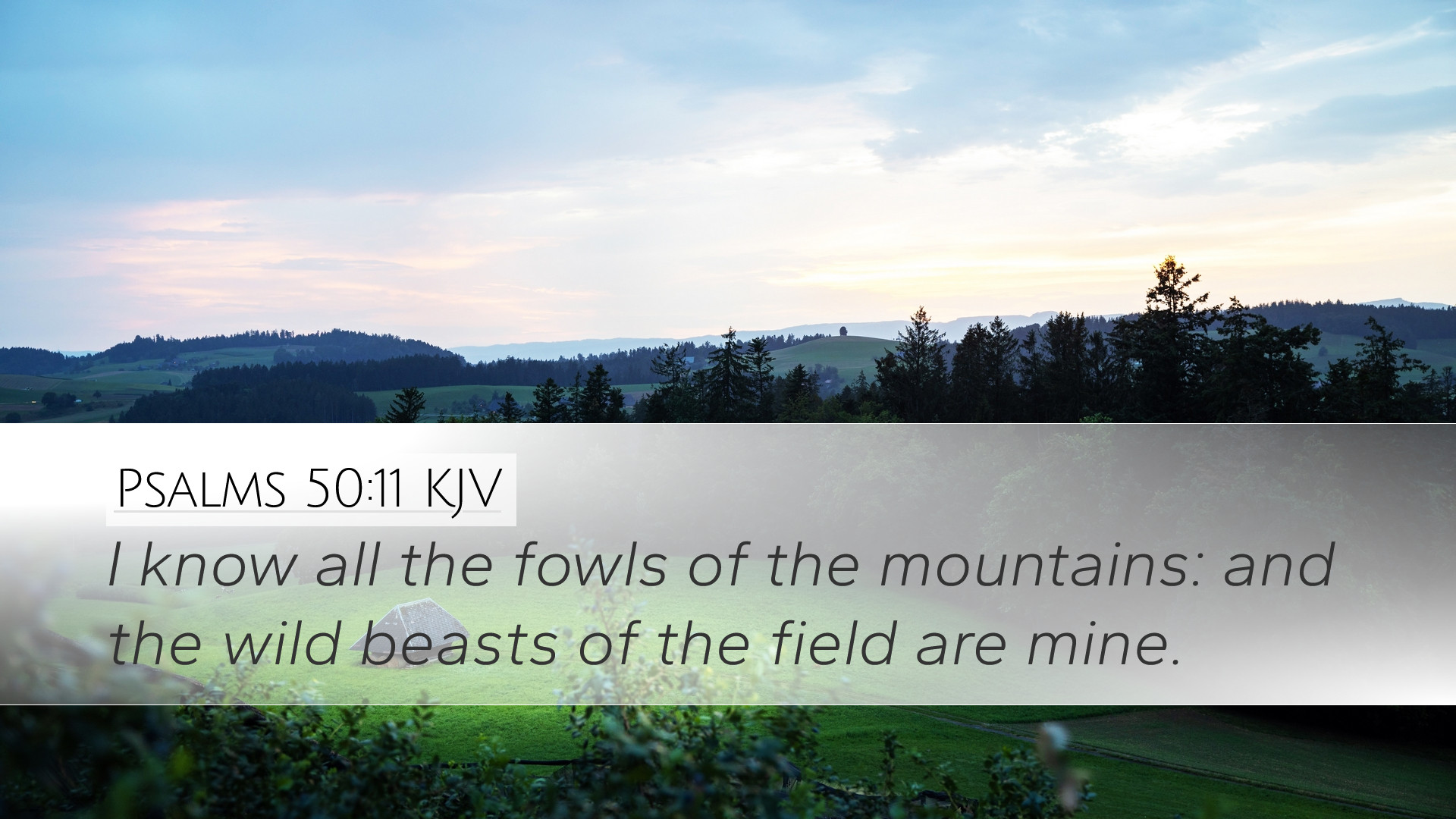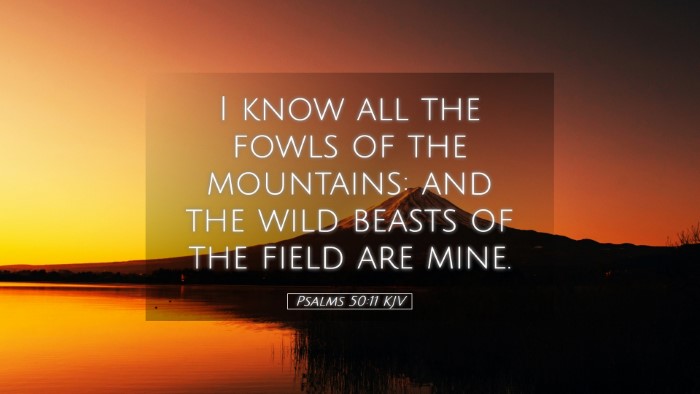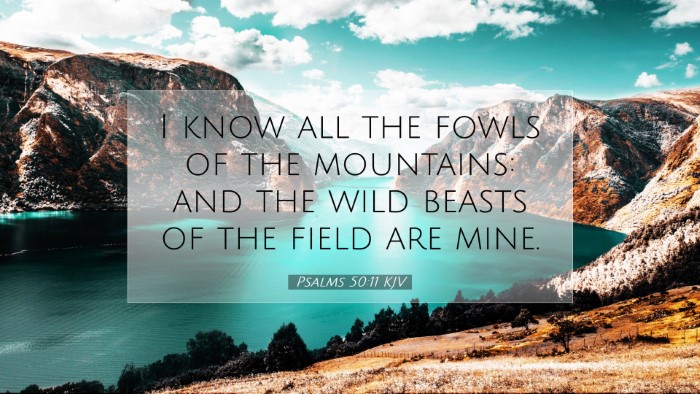Psalms 50:11 Commentary
Verse Text: "I know all the birds of the mountains, and the wild beasts of the field are Mine." (Psalm 50:11, NKJV)
Introduction
Psalm 50 is a powerful declaration of God's sovereignty and a call to sincere worship. In verse 11, God emphasizes His ownership over all creation, signaling to the faithful the importance of recognizing His authority. This verse serves as a foundation for understanding God's relationship with humanity and nature.
Theological Insights
Various public domain commentaries shed light on the depth of this verse. The insights from Matthew Henry, Albert Barnes, and Adam Clarke each contribute to a richer understanding of the implications of God's claim on all creatures.
Matthew Henry's Commentary
Matthew Henry points out that God's knowledge of all created things reflects His omnipotence and omniscience. He notes that the phrase "I know" indicates a deep, intimate awareness of the creatures in the mountains and fields.
- Ownership and Care: Henry elaborates on the idea that since God knows the creatures, He also claims them as His own. This ownership implies a caring relationship, where God sustains and provides for all aspects of creation.
- God's Sovereignty: The assertion that the beasts of the field are His conveys that nothing exists outside of His divine will. It serves as a reminder that God is in command, and all things must submit to His authority.
- Call to Reverence: By establishing His dominion over nature, God invites His people to reverence Him as Lord. This verse reinforces the need for worship grounded in an understanding of God’s grandeur.
Albert Barnes's Notes
Albert Barnes emphasizes the depth of God’s knowledge, asserting that no creature is hidden from Him. This awareness encompasses both the majestic and the mundane aspects of life, underlining God’s comprehensive understanding.
- Natural Order: Barnes suggests this verse underscores the natural order established by God. He explains that since all creatures ultimately belong to God, humanity should analyze its place in this order, operating within the parameters of divine will.
- Spiritual Implications: The acknowledgment of God's ownership should compel believers to live righteously, with a sense of accountability to the Creator. Knowledge of God’s care over even the least of creatures calls for stewardship and responsible interaction with the environment.
Adam Clarke's Commentary
Adam Clarke provides a penetrating analysis of the significance of the statement regarding birds and beasts, stating that it represents God’s authority over His entire creation.
- Symbolism of Birds and Beasts: Clarke discusses the symbolic meanings of these creatures. Birds may represent the fleeting and the aerial life; beasts symbolize strength and dominion. Both categories highlight God’s mastery over various forms of existence.
- God’s Provision: In Clarke's view, the divine knowledge of each creature's needs affirms God’s ongoing provision for creation. This sentiment reinforces humanity’s role as caretakers under God's guidance, nurturing what belongs to Him.
- The Call to Worship: Clarke concludes that an understanding of God's ownership should inspire true worship rather than mere ritualistic observance. God desires a heart aligned with His own, recognizing the sacredness of all life.
Practical Applications
The theological depth of Psalms 50:11 extends into practical living for believers. The insights gathered from these commentaries yield several applications:
- Environmental Stewardship: Acknowledging God as the creator and owner of all encourages a responsible approach to nature. Christians are prompted to care for the earth and its inhabitants, reflecting God’s love and concern.
- Personal Accountability: Understanding God's omnipresence and authority over all aspects of life leads to a greater sense of accountability. Believers are reminded that their actions have consequences and should align with God's purposes.
- Authentic Worship: Recognizing God's sovereignty inspires a posture of genuine worship. Rather than merely fulfilling religious duties, believers are encouraged to engage with God in spirit and truth, acknowledging His most profound rights over creation.
Conclusion
Psalms 50:11 invites deep contemplation of God's majesty and ownership over all creation. Integrating insights from reputable commentaries helps believers, students, and scholars alike appreciate the richness of this verse. It challenges Christians to live in a way that honors God’s sovereignty, leading to authentic worship and responsible caretaking of His world.


